(November 17, 2021) From the Grammy-winning album Winds of Samsara to My Earth Songs and most recently Divine Tides, composer, musician and humanitarian conservationist Ricky Kej has the propensity to dig deep into ragas and their effervescence. Composing strains that not just stand the tests of time, but also alleviate the angst that humans wreak on nature, Ricky is an activist at heart. If he defines his life on two cornerstones – music and conservation, it is because many of his signature albums have an intrinsic bond with nature.
The dentist who turned inwards conjuring up soulful music from ordinary notes has been on a journey of awakenings, be it with music, or through it, to raise environmental consciousness. A degree in dental surgery lies gathering dust, yet Ricky feels that his career was never a transition. “I have always been a musician. From a young age, I wanted music as my hobby, profession, career, bread and butter. I did a degree in dental surgery only because of my parents. I had made a deal with my father that once I completed a dental degree, my life was my own. The minute I got my degree, I handed it over to my parents and became a full-time musician. I did not practice dentistry even for a day,” smiles the idealist believer who might just inspire a world of somewhat clueless folk who want to follow their hearts.
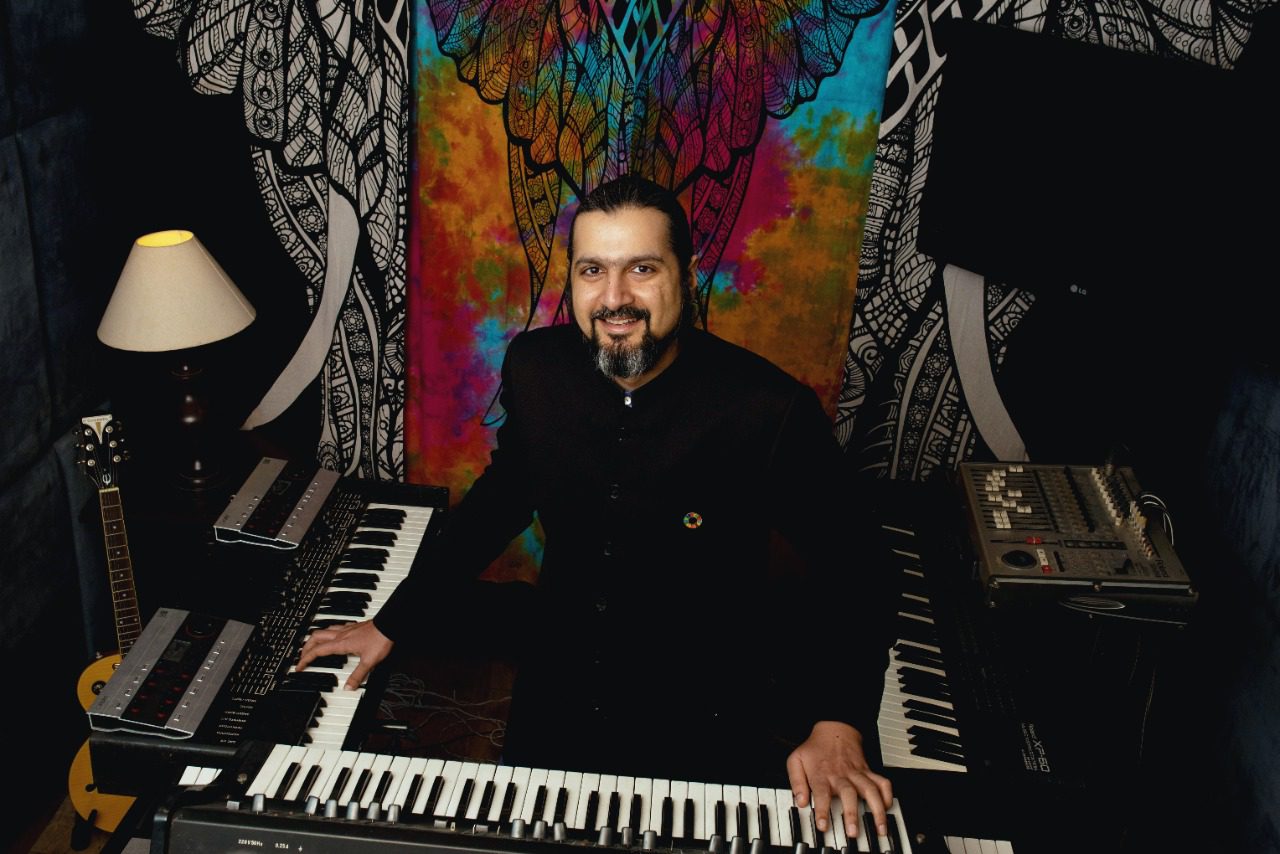
Ricky Kej
His recent album Divine Tides saw Kej associate with Stewart Copeland, founder and drummer of the Police fame. Now, he is working on a follow-up to his 2015 Grammy-winning Winds of Samsara (for which he worked with South African Wouter Kellerman). Back then, both Kej and Kellerman were huge fans of each other, and wanted to work together. A tryst of destiny brought them together.
“It was around 2012 when I met flute player Wouter Kellerman. We met in Los Angeles, and I mentioned that I had just composed a piece of music based on the ideals of peace by Mahatma Gandhi, my father of the nation. It was a huge coincidence that Wouter was working on a piece of music inspired by Nelson Mandela, his father of the nation. Through our discussions, we realised that there was a lot of cross-pollination – Mahatma Gandhi spent his formative years in South Africa, so had a South African-ness while Mandela was heavily inspired by Gandhi so had an Indian-ness. Wouter started to add South African-ness to my music, I started to add Indian-ness to his music. We became the best of friends, travelled the globe and in two-and-a-half years, we had Winds of Samsara (my 16th album!), and it went to the top of the US Billboard charts, and we won the Grammy Award for it,” Ricky recalls. For the musician who has won over 100 music awards across 20 countries, the Grammy Award is most cherished as awards are for a greater good, not just for mere vanity, he says.

Ricky Kej with his Grammy Award
The pandemic was the perfect opportunity to kick back in his studio and kickstart Divine Tides with Copeland. “I was thrilled when he said yes. I have always relied on technology for my recordings, and Stewart too is high on technology, and has one of the most amazing home studios. That helped us record seamlessly. We did our portions individually, and it all came together superbly. We are thrilled to have created an album that celebrates life, creates a wave of much-needed positivity,” adds the Global Indian.

Divine Tides by Ricky Kej and Stewart Copeland
For a star who idolised Copeland, working with him was like attending “the best masterclass imaginable!” Kej says, “Stewart is not just the founder and drummer of one of the biggest selling bands in history ‘The Police’, he also regularly composes for operas, orchestras, and for over 50 Hollywood movies. He is constantly evolving and learning by exploring new sounds, traditional instruments, and rhythms,” which formed an intrinsic bond with Ricky, as his pattern is similar. The songs imbue strong Indian roots with a fusion of the west as the album celebrates the magnificence of the natural world, and the resilience of our species.
It’s easy to picture the wavy-haired lad with dark soulful eyes mesmerised by all forms of music as a child. Listening was more important than seeing, thus Ricky was hooked to his music system. “I would dissect songs, try and figure out instruments used, the musicians, and learn about different cultures and people,” Kej reminisces. Music helped him fall in love with nature, and become its custodian. This deep connection can be felt in the gentle stirrings on Winds of Samsara or the unique sounds of Divine Tides.
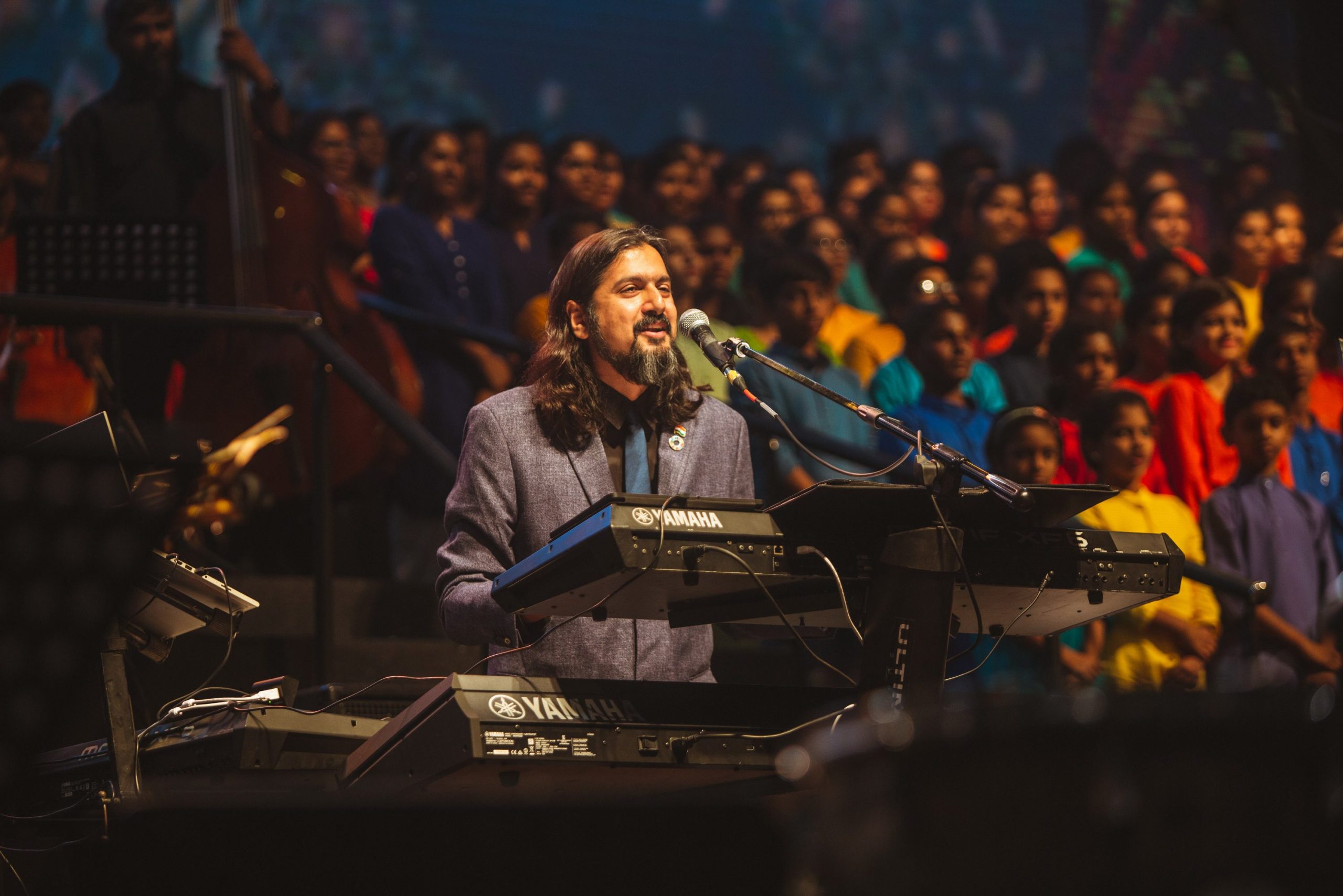
Ricky Kej performing at a live concert.
Kej’s music features in the 2019 documentary Wild Karnataka narrated by Sir David Attenborough which won two awards at the 67th National Film Awards 2021. The US-born, Bangalore-raised Ricky identifies with Karnataka, and Bangalore which became home at age eight when he left North Carolina. Scoring music showcasing the state’s ecological diversity with Sir Attenborough’s impeccable narration was of course, “an absolute no-brainer” for Kej.
“Music and conservation are the two pillars that define my life. Wild Karnataka brings out the inner child as you watch every stunning frame with awe and wonder. It forces you to realise how amazing Mother Nature is. She has always been the primary source of inspiration for my music,” adds Ricky who was honoured to share credits with Sir Attenborough. “Winning the awards furthered the cause of protecting and preserving Mother Nature,” he says.
A humanitarian, Kej has always attempted to bridge the widening chasm between human foibles and nature’s resilience. As ambassador for the United Nations’ UNICEF, UNCCD, UNESCO -MGIEP, Kej works closely with WHO, Earth Day Network, etc. The deeply mindful composer gains an impetus to dedicate his life to conservation. “My music has addressed different aspects of environmental and social issues – climate action, human-animal conflict, sustainable farming, the refugee crisis, etc. I believe that only when people start to acknowledge an issue, start a dialogue to solve it, can a solution appear. I want to inspire this dialogue through music. Music has the power to retain a message deep in the consciousness of a listener,” says the United Nations Global Humanitarian Artist award winner who missed performing during Covid 19 but believes in the “top-down approach” where he performs to inform audiences to create stronger policies to tackle environmental and health issues with a “ground-up approach.”
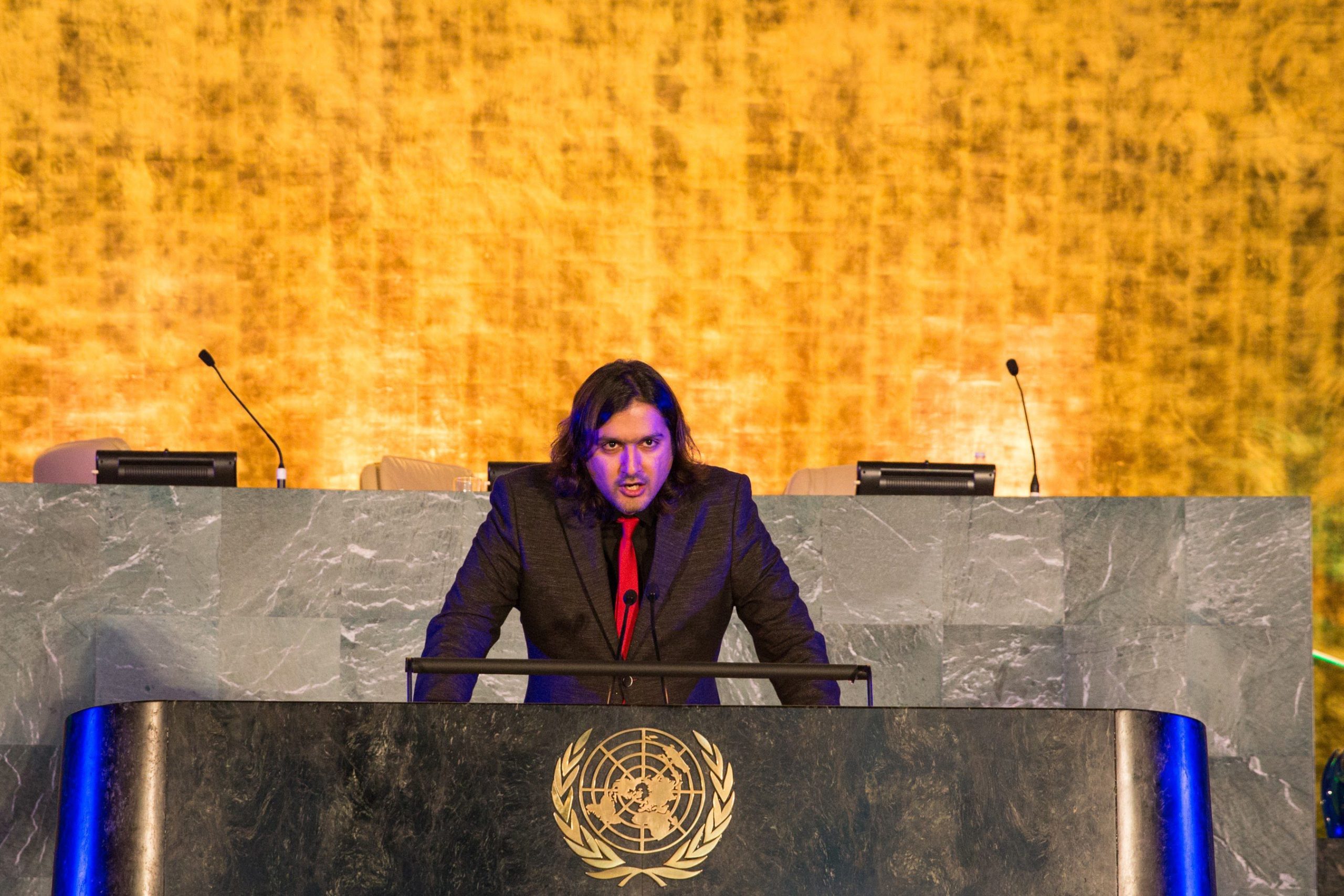
Ricky Kej addressing the UN General Assembly in 2016.
Climate change is the biggest existential crisis humans face, and he urges, “It is up to artists, especially musicians, to advocate for climate action.” What concerns him greatly is how the pandemic has hit the entertainment industry. “Performing artists, production companies, event management companies, sound engineers, recording studios and everyone else involved is stuck in limbo in India. It is all about adapting to the times and surroundings as no matter what pandemic hits us, music will never leave our lives,” says the Bengalurean who is among the 100 Real Leaders, who has performed multiple virtual concerts during Covid 19 (the last three were watched by an estimated 200 million viewers).
For Ricky’s new project, he worked with author and close buddy Vikram Sampath – Women Of The Record which celebrates the brave women in the early 1900s who first adopted recording technology, and became superstars, but were forgotten in history.
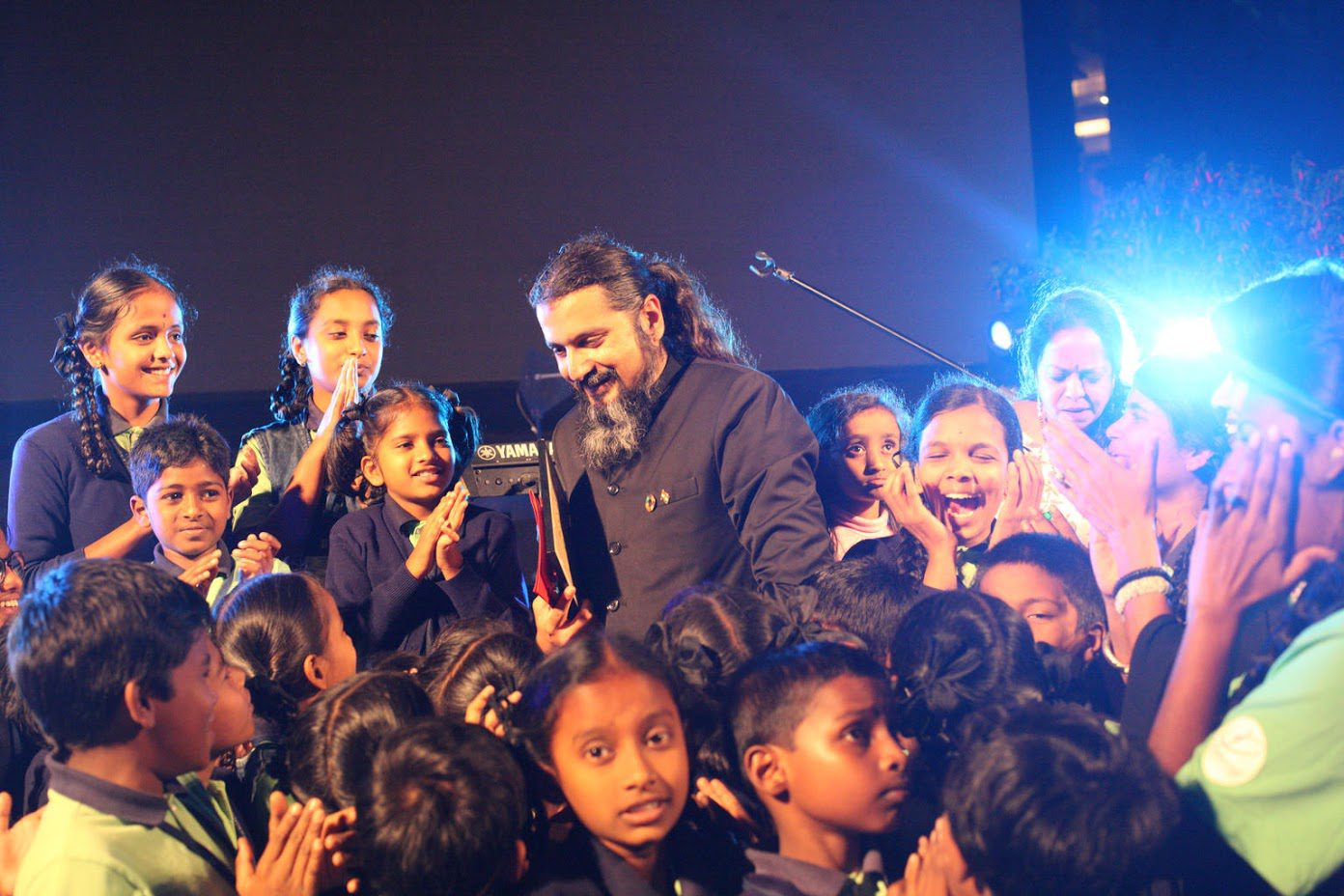
Ricky Kej performing for UNICEF India.
Not many know that Kej’s grandfather Janaki Das, who he was extremely close to, was an actor, Olympic cyclist, and freedom fighter. “Many remember him as the buffoonish villainous character actor always essaying evil roles. You will remember him as Seth Ghanshyam in the Rishi Kapoor-starrer Khel Khel Mein, or Seth Janki Lal in Karishma Kudrat Kaa or the ticket collector in the Burning Train. He was the only Indian participant in the International Olympic Squad from British Imperial Empire in the 1936 Berlin Olympic Games and in 1934 and 1942, he broke the world record for cycling. In 1942, he broke yet another world record but on finishing the race, he unfurled the Mother India flag which was gifted to him by Mahatma Gandhi (we were still ruled by the British). For this audacious act, he was disqualified. This was the first time an Indian flag was unfurled on foreign soil. He called it quits as a matter of protest for freedom from the British. He was the pioneer who formed the Indian Cycling Federation,” Kej enthuses.
His grandfather died at the age of 93 in Mumbai in 2003. Ricky’s wife Varsha is also a musician who has been a part of a few compositions and is a core part of his musicology.

Ricky Kej
Advice from the music maestro? “Talent may not always be under your control, but you can be the most hardworking person, like I am! Never use creativity as an excuse for laziness. Never make awards the end goal, be grateful when you earn them, and use them as a platform for doing bigger and better things,” says the Bishop Cottons Boy’s High School student who never lacks inspiration as his muse is planet Earth.
Follow Ricky Kej on Instagram and Twitter

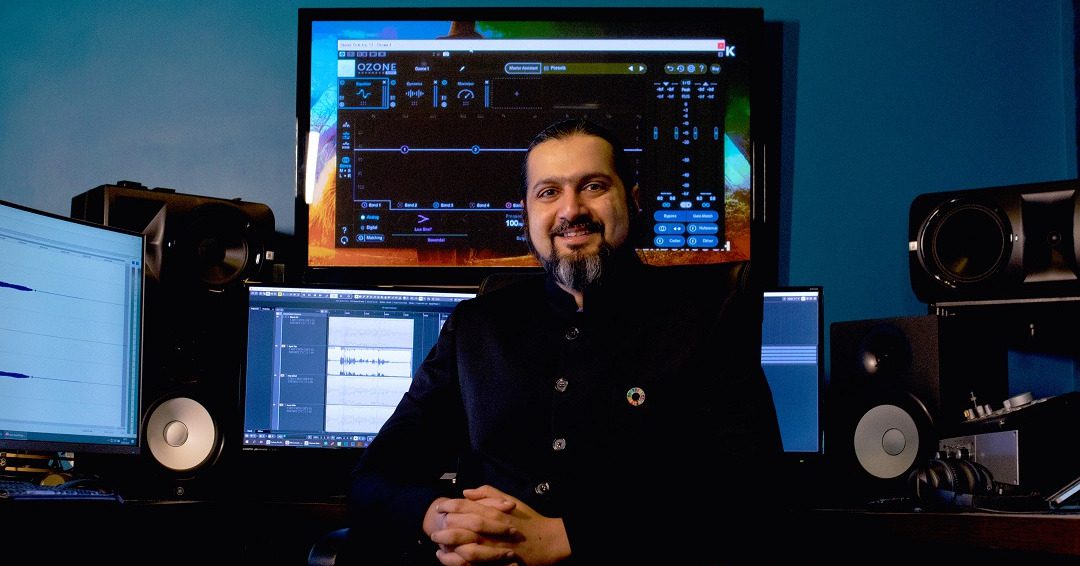
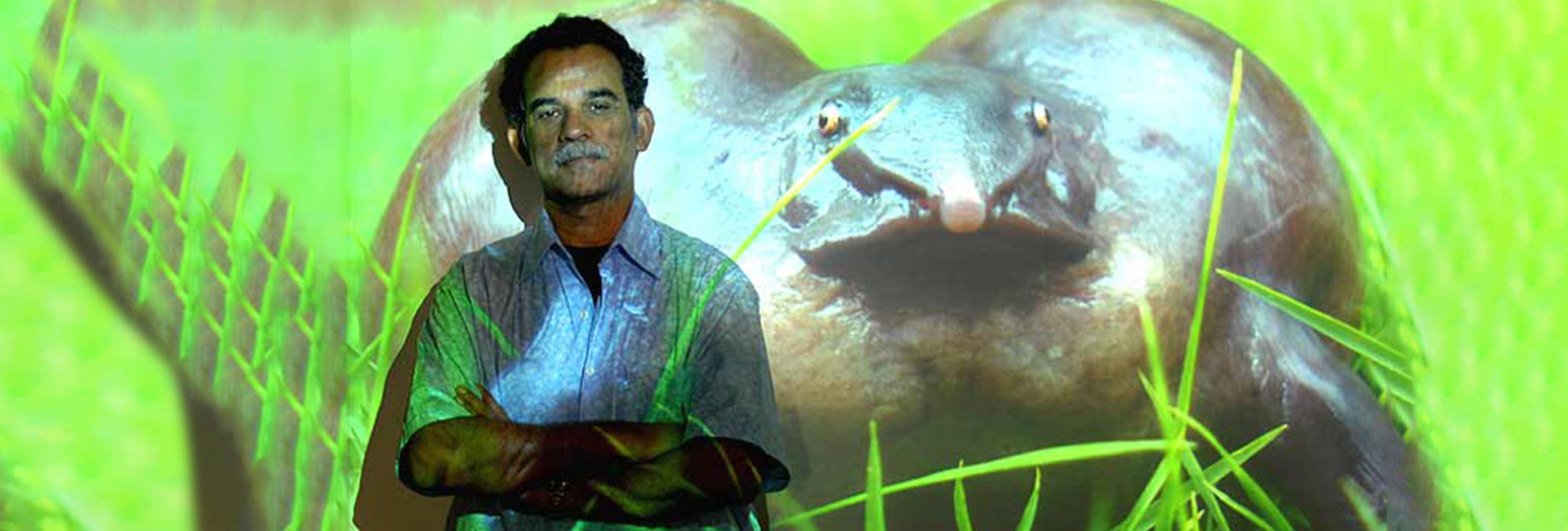
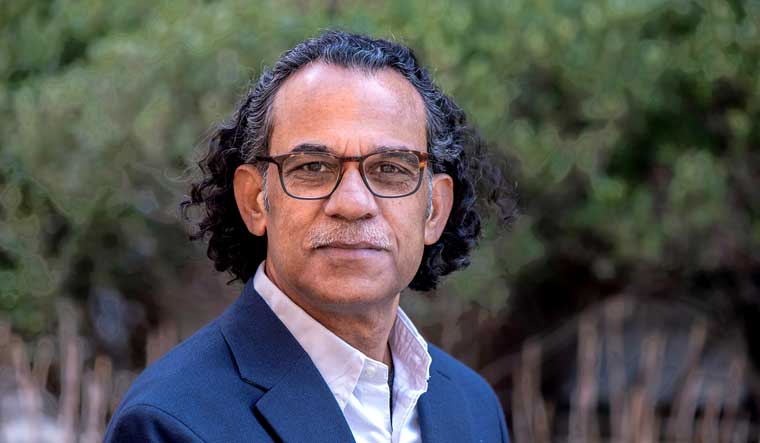 Dr S.D. Biju[/caption]
Dr S.D. Biju[/caption] Photo Credit: Prof SD Biju[/caption]
Photo Credit: Prof SD Biju[/caption]
 Photo Credit: Prof SD Biju[/caption]
Photo Credit: Prof SD Biju[/caption]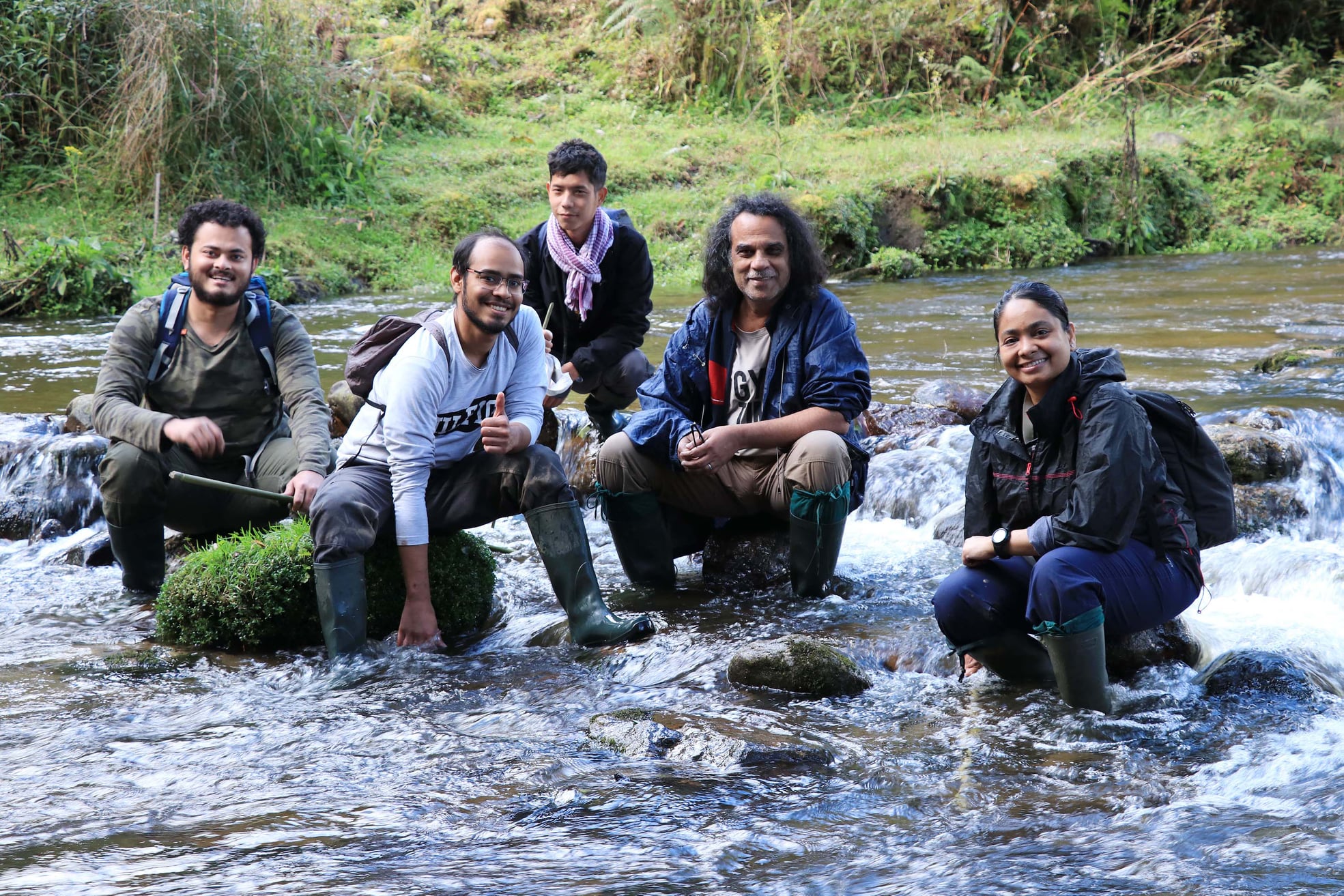 Prof Biju and his team on field study[/caption]
Prof Biju and his team on field study[/caption] A rare species - Indian Purple Frog ((Nasikabatrachus Sahyadrensis) that is usually found 18 feet under the soil discovered by Prof SD Biju | Photo Credit: Prof SD Biju[/caption]
A rare species - Indian Purple Frog ((Nasikabatrachus Sahyadrensis) that is usually found 18 feet under the soil discovered by Prof SD Biju | Photo Credit: Prof SD Biju[/caption]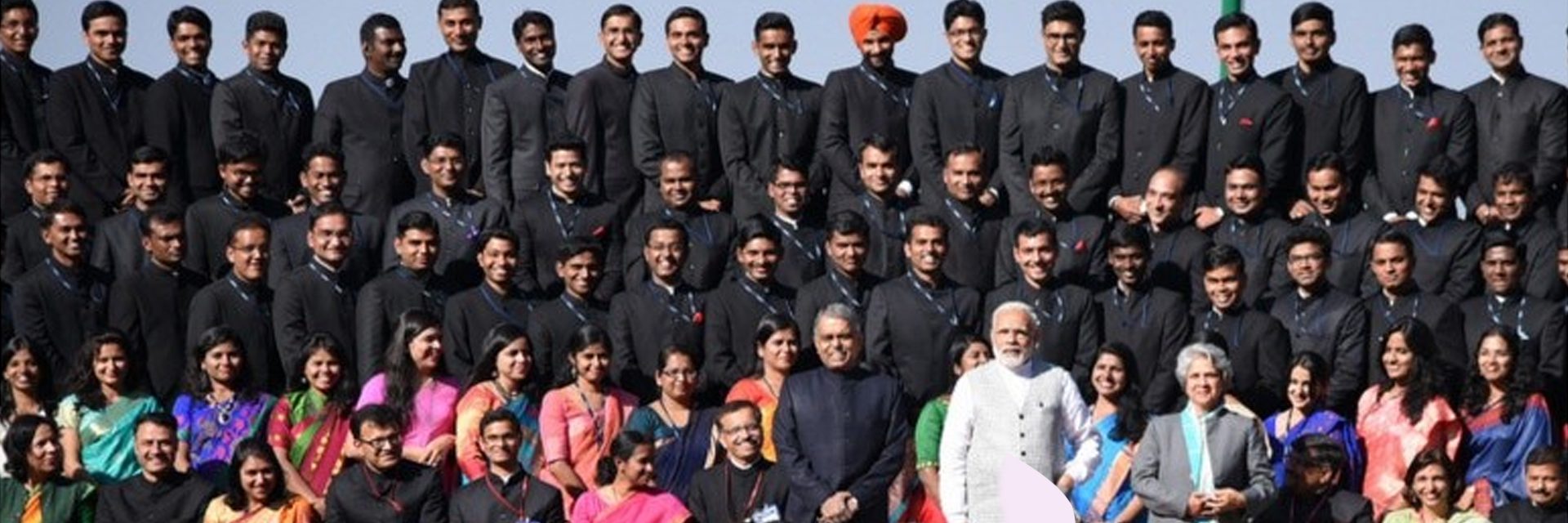
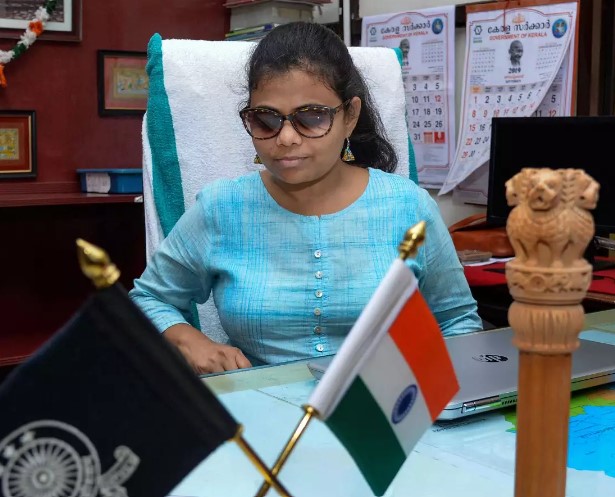 Pranjal Patil[/caption]
Pranjal Patil[/caption]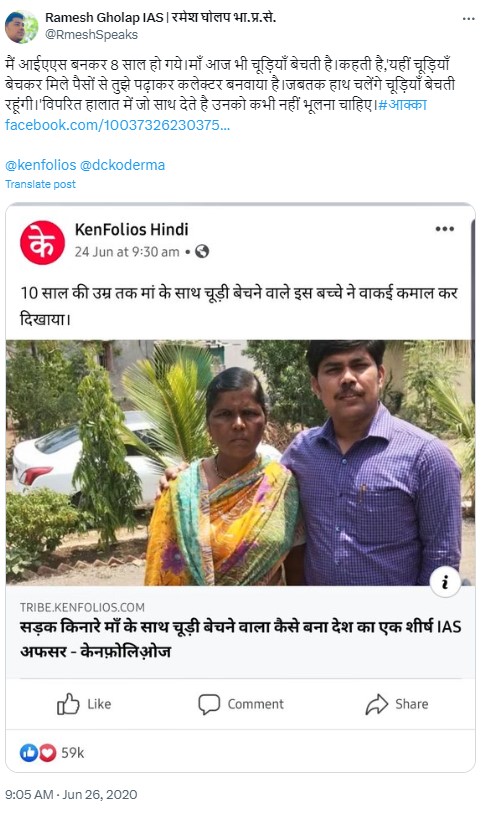
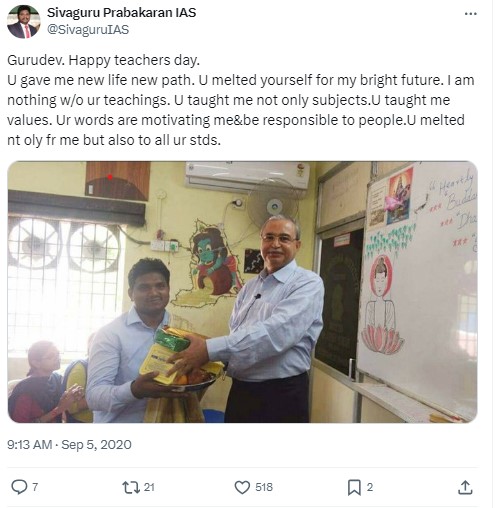





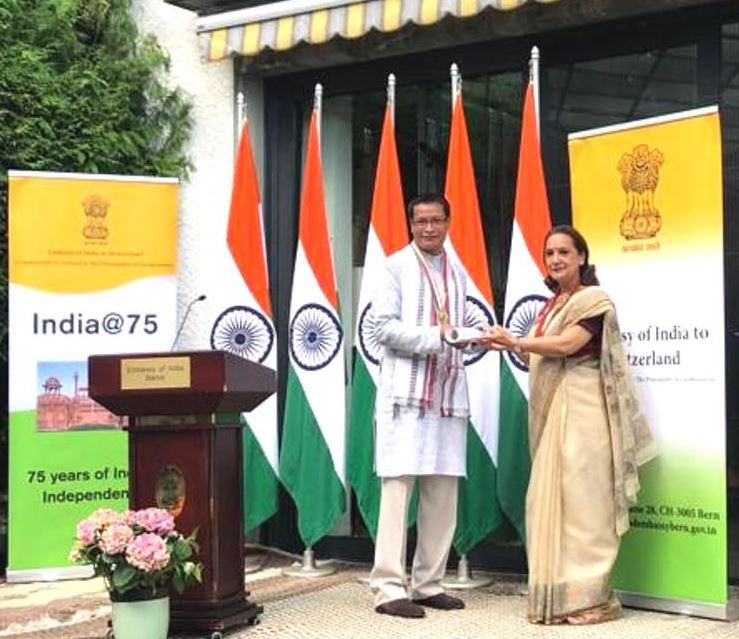 Dr Shachi receiving Pravasi Bharatiya Samman by the Indian Embassy in Bern, Switzerland. He was felicitated by Ambassador Monika Kapil Mohta[/caption]
Dr Shachi receiving Pravasi Bharatiya Samman by the Indian Embassy in Bern, Switzerland. He was felicitated by Ambassador Monika Kapil Mohta[/caption]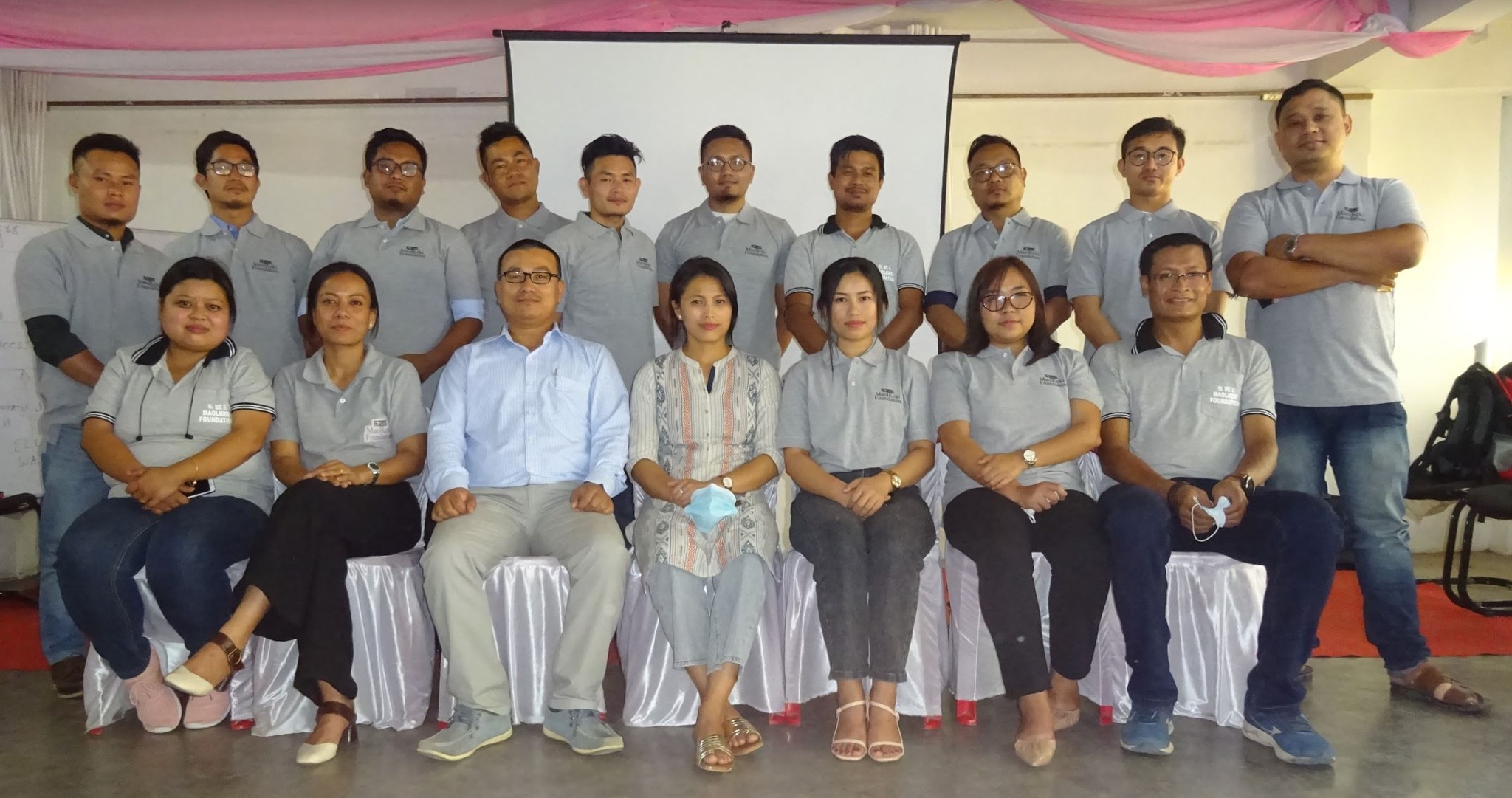 The Maolkeki Foundation team[/caption]
The Maolkeki Foundation team[/caption]
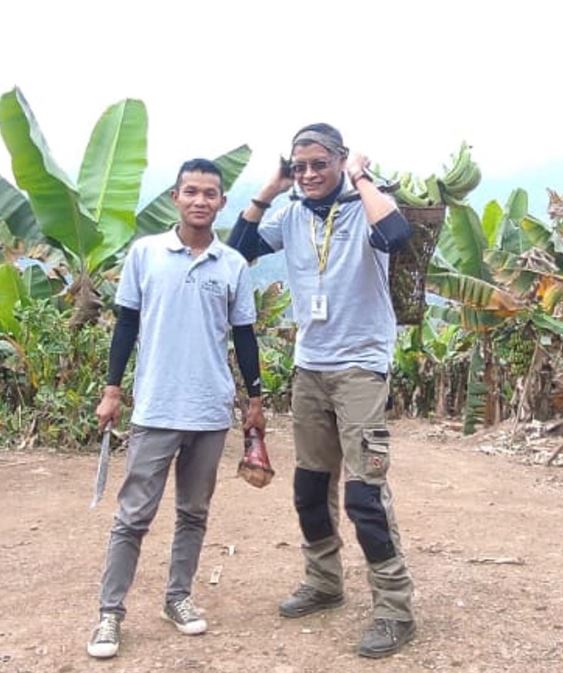 For Shachi, it was a moment to learn what farmers experience in carrying a 'sam' around![/caption]
For Shachi, it was a moment to learn what farmers experience in carrying a 'sam' around![/caption]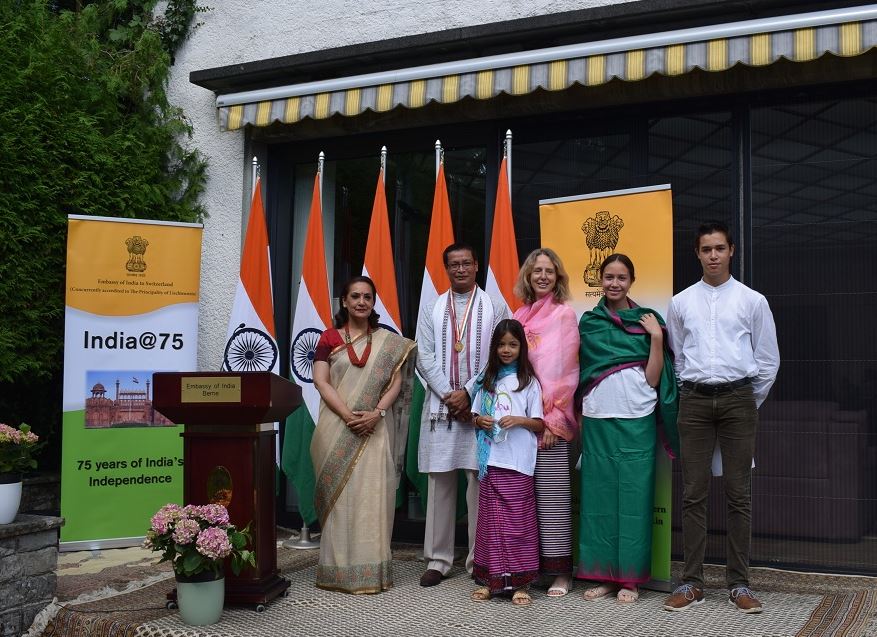 Shachi Gurumayum with his family during the Pravasi Bharatiya Samman ceremony at the Indian Embassy in Bern, Switzerland[/caption]
Shachi Gurumayum with his family during the Pravasi Bharatiya Samman ceremony at the Indian Embassy in Bern, Switzerland[/caption]